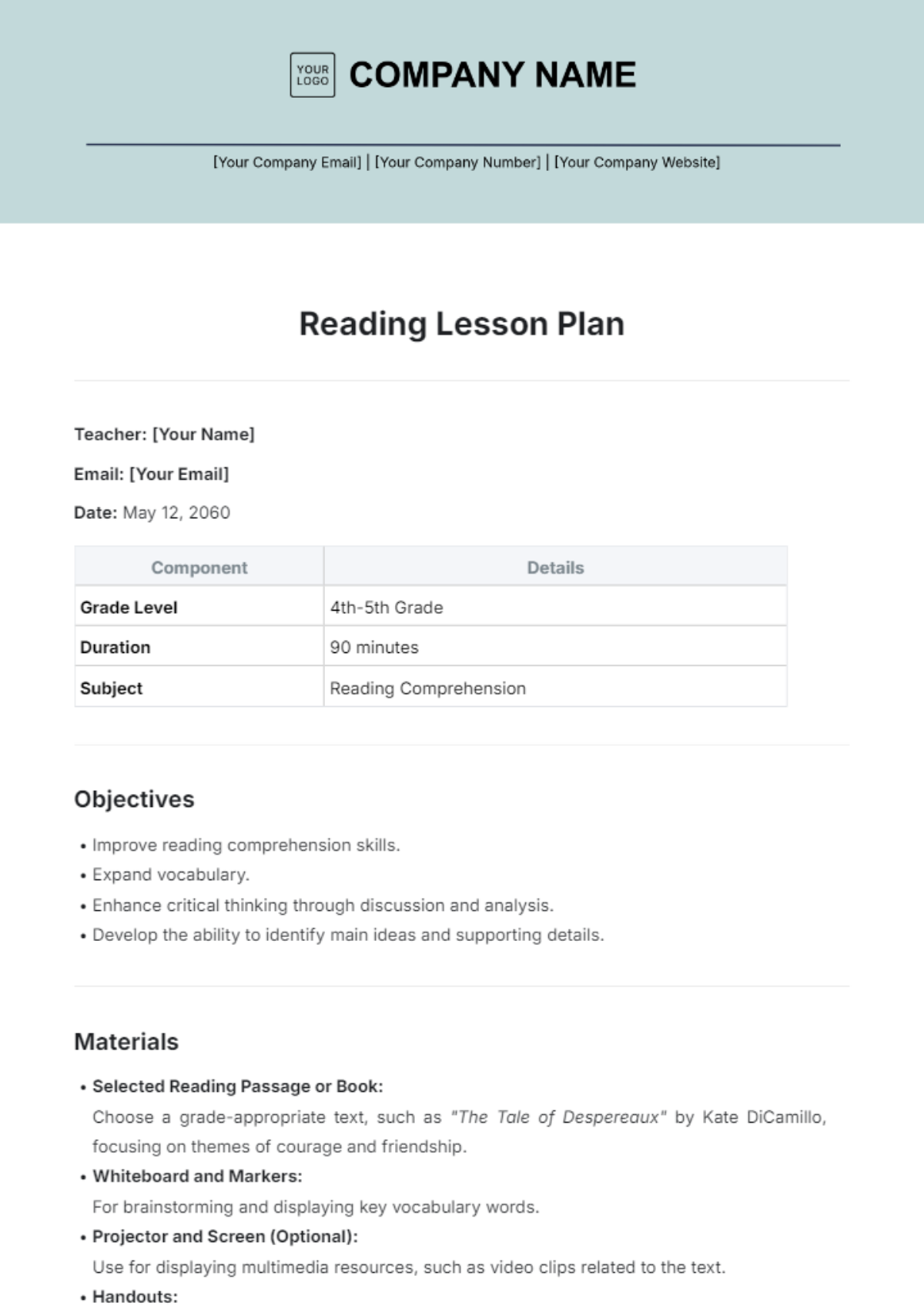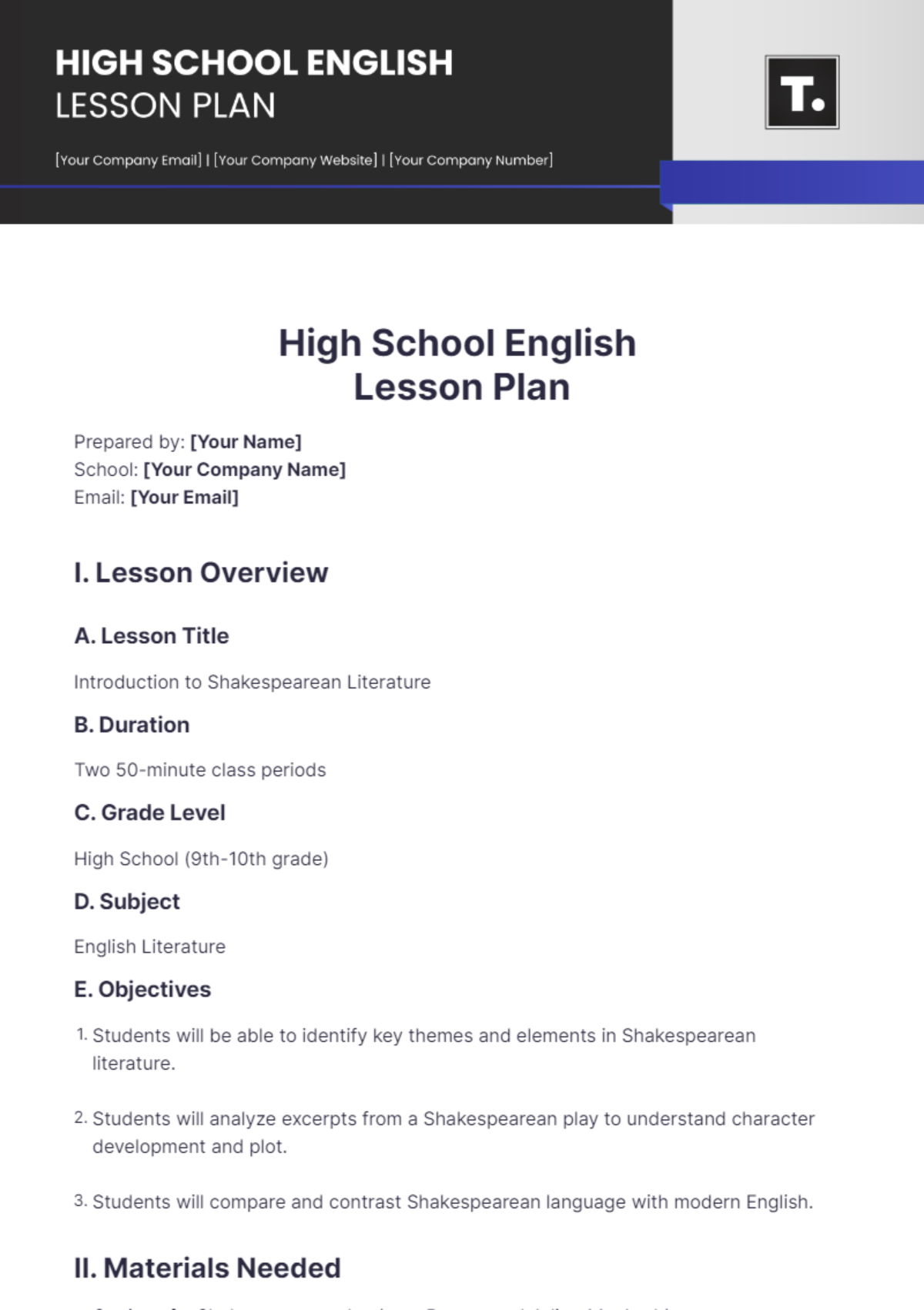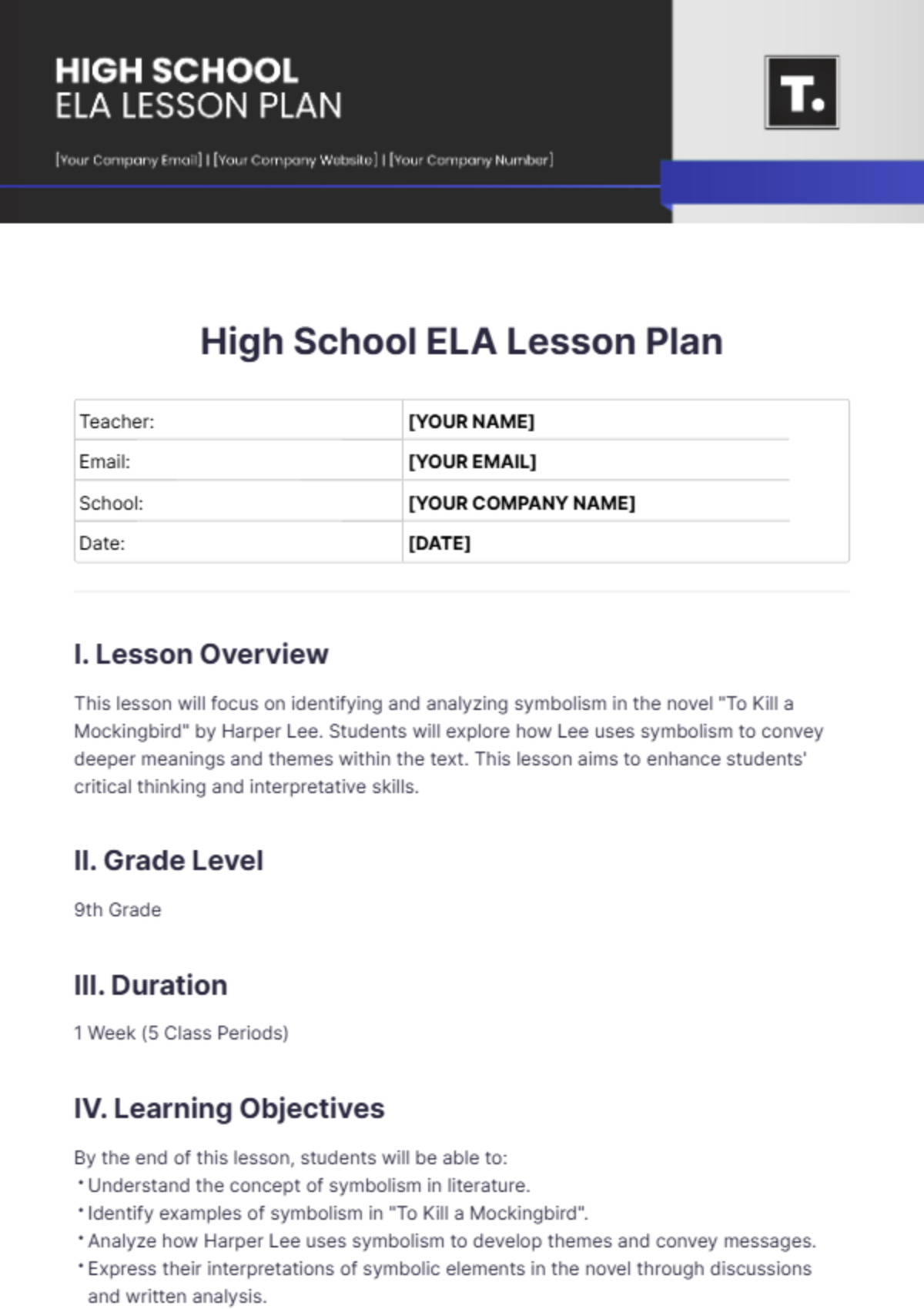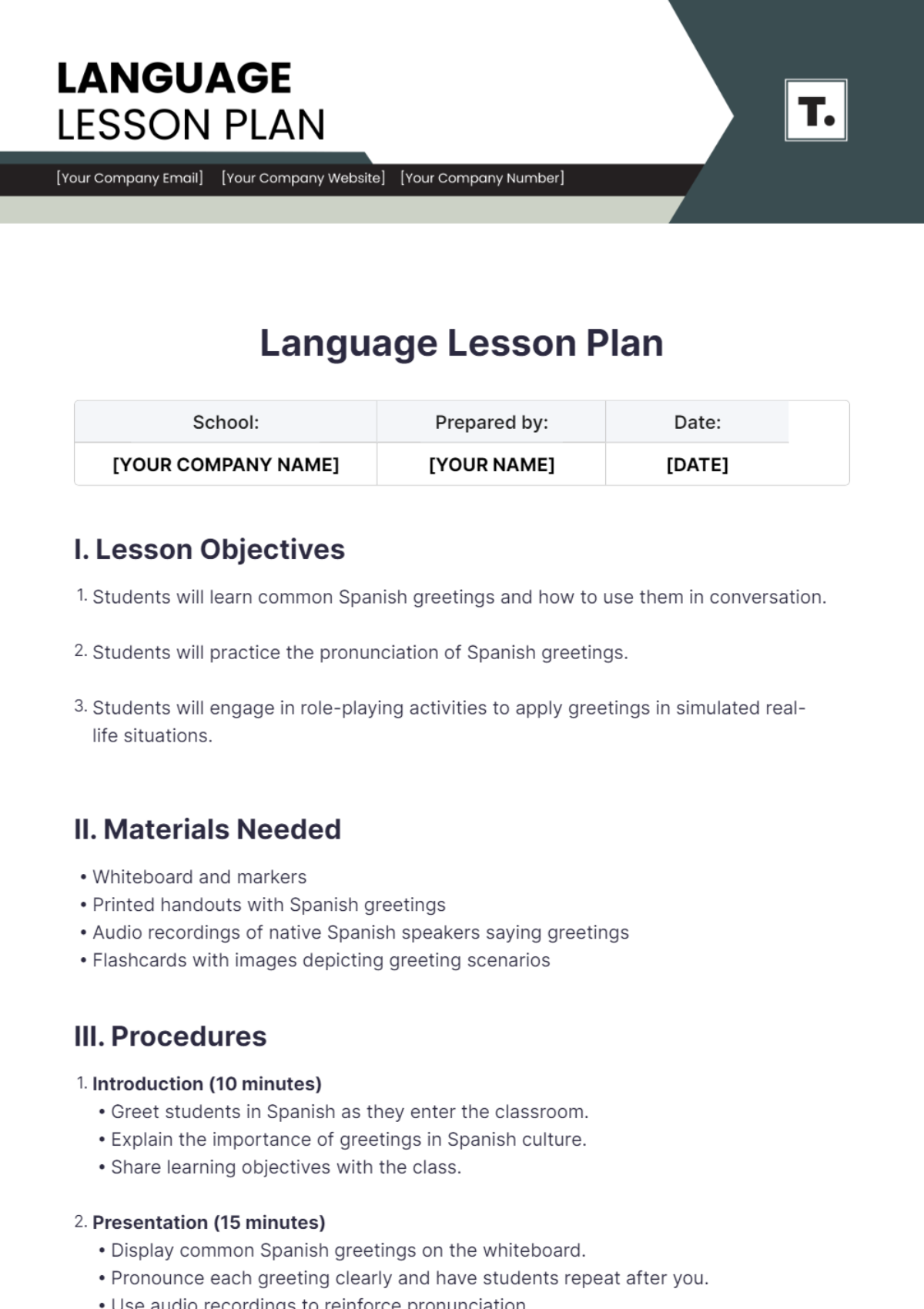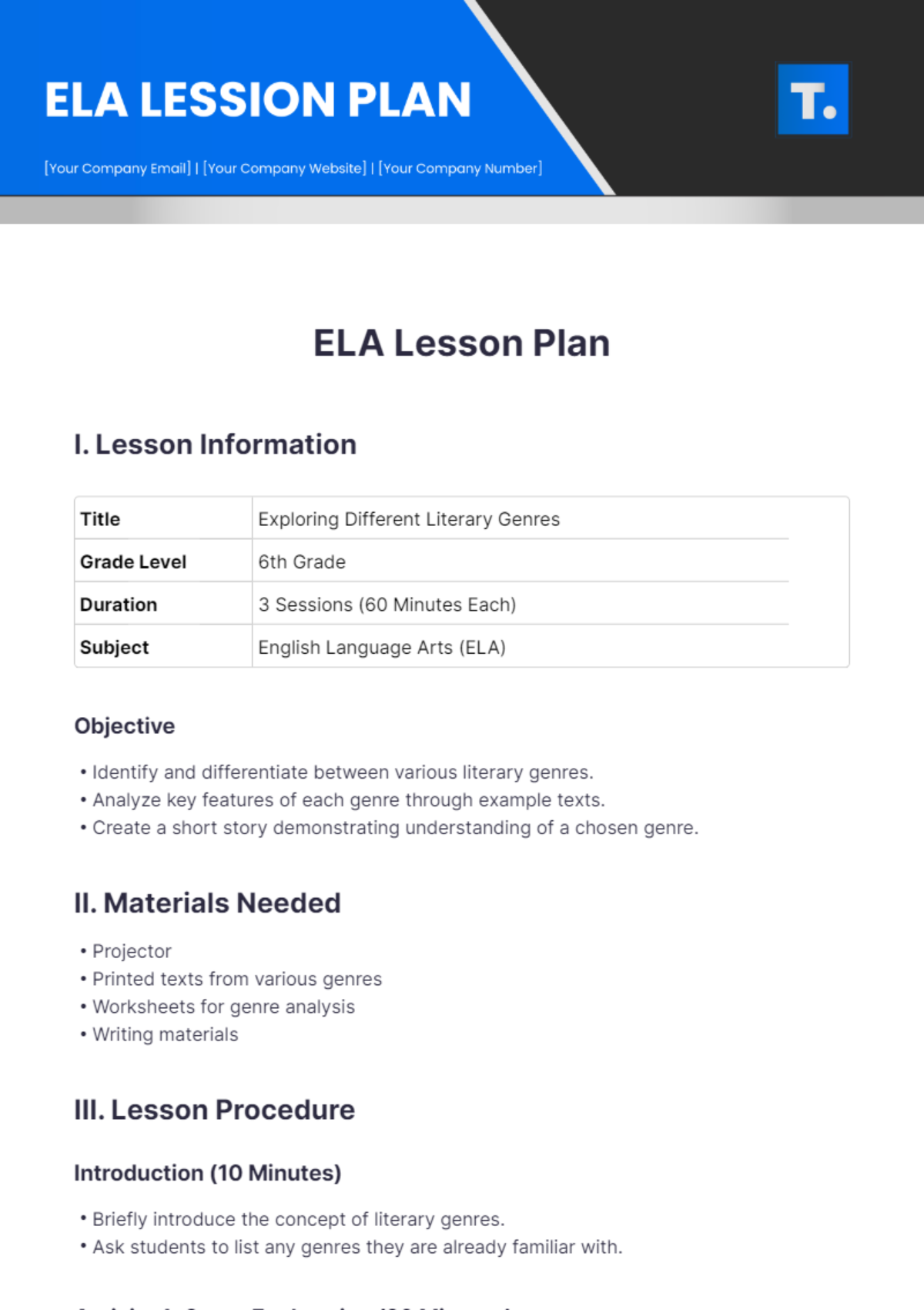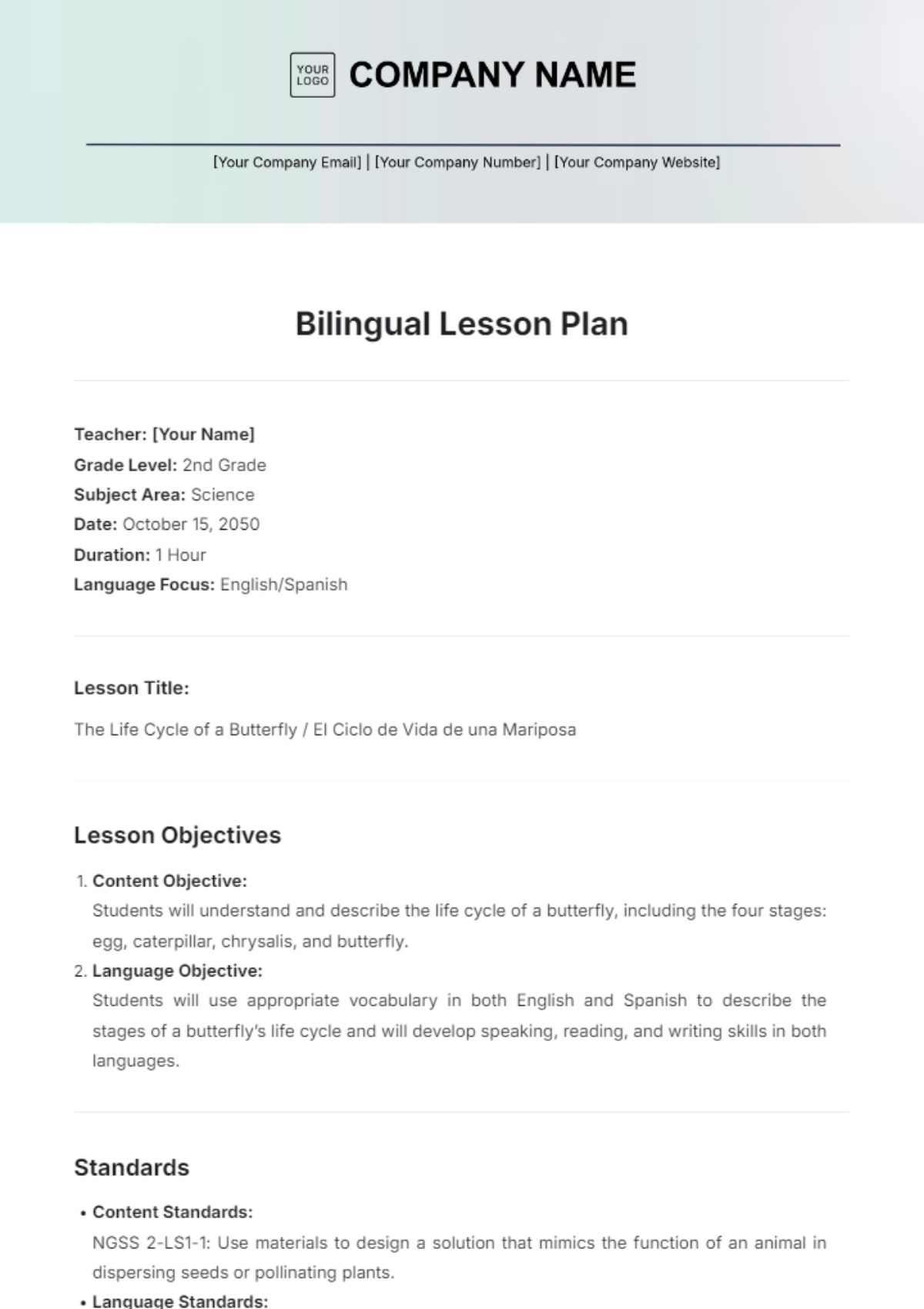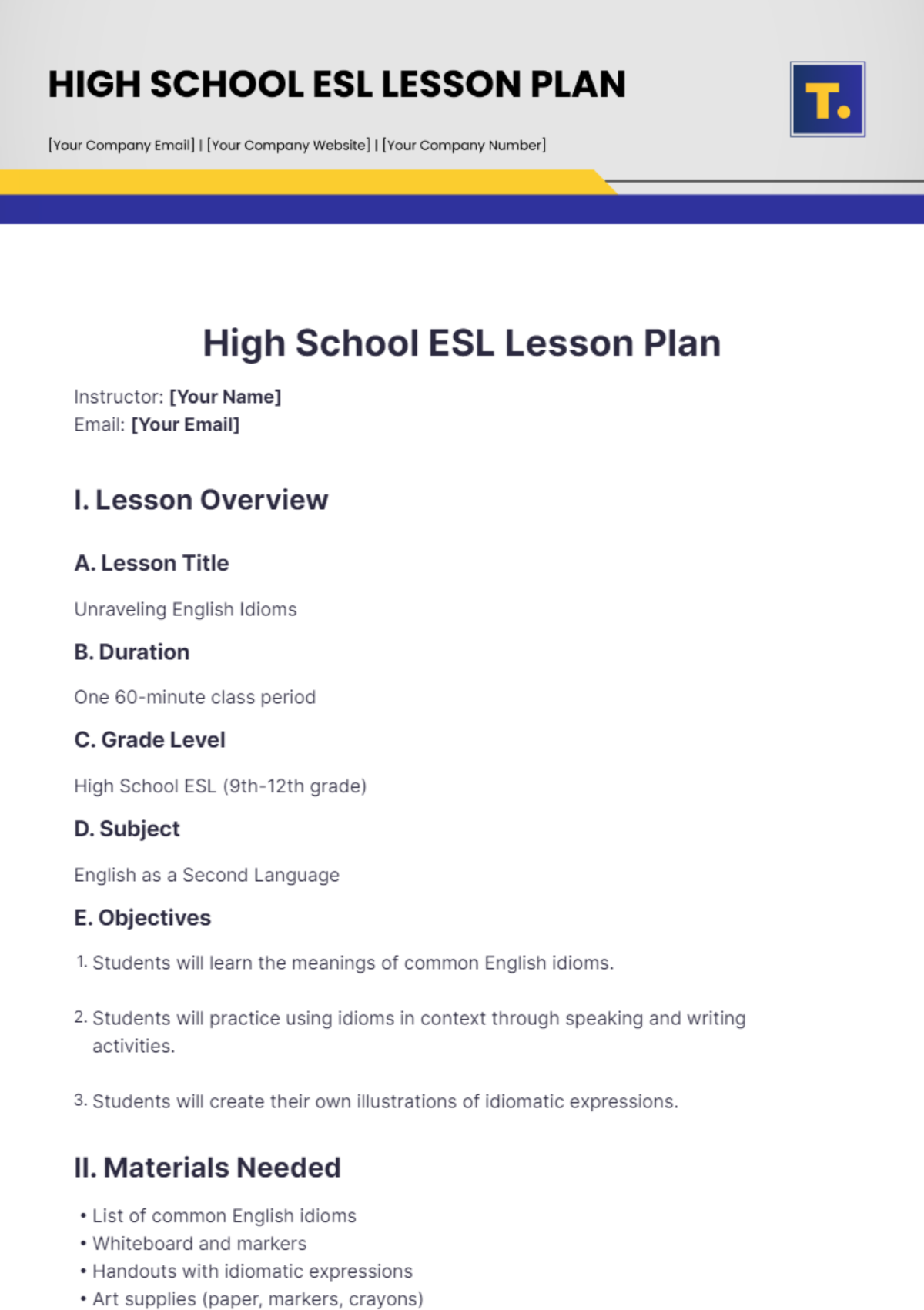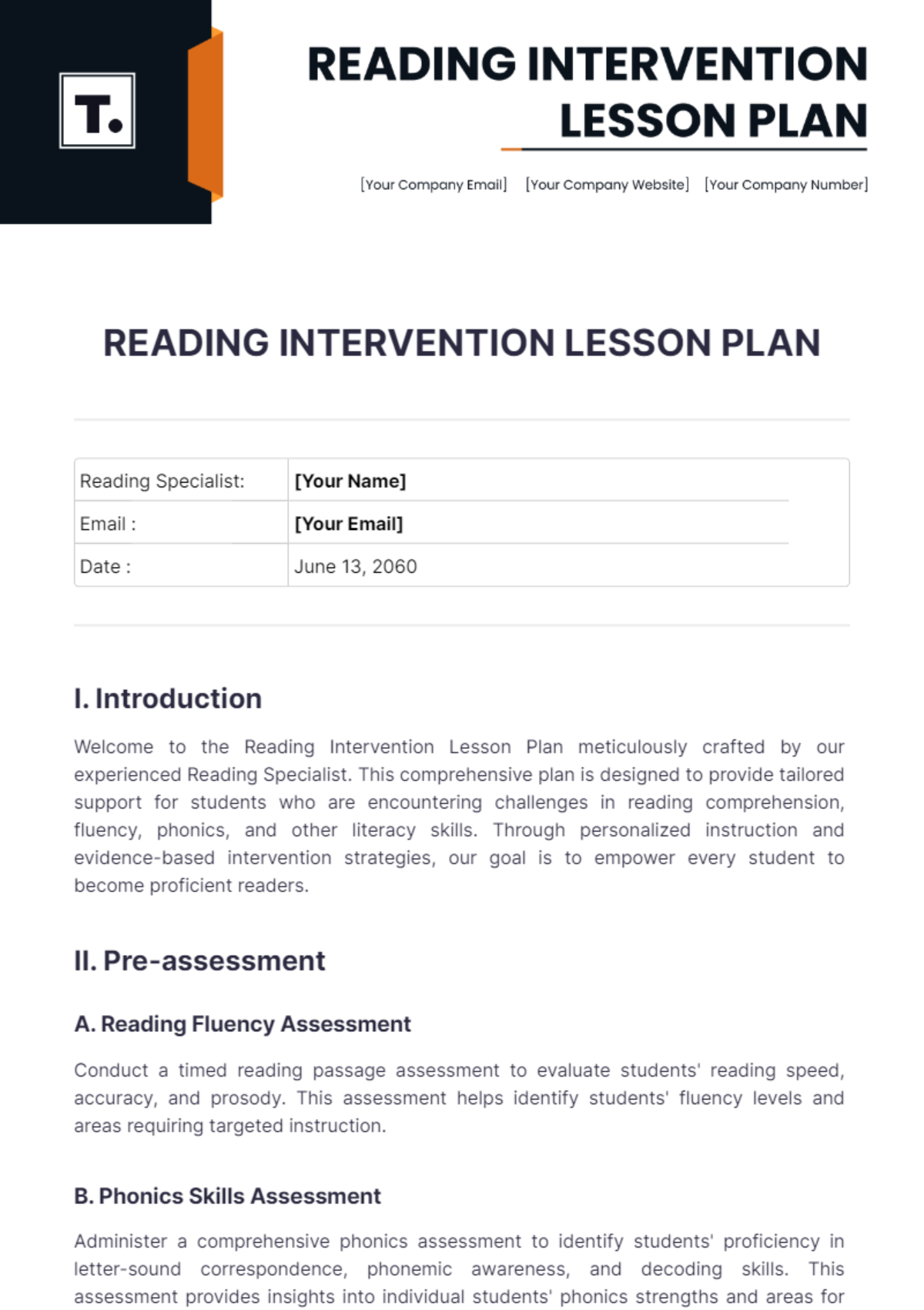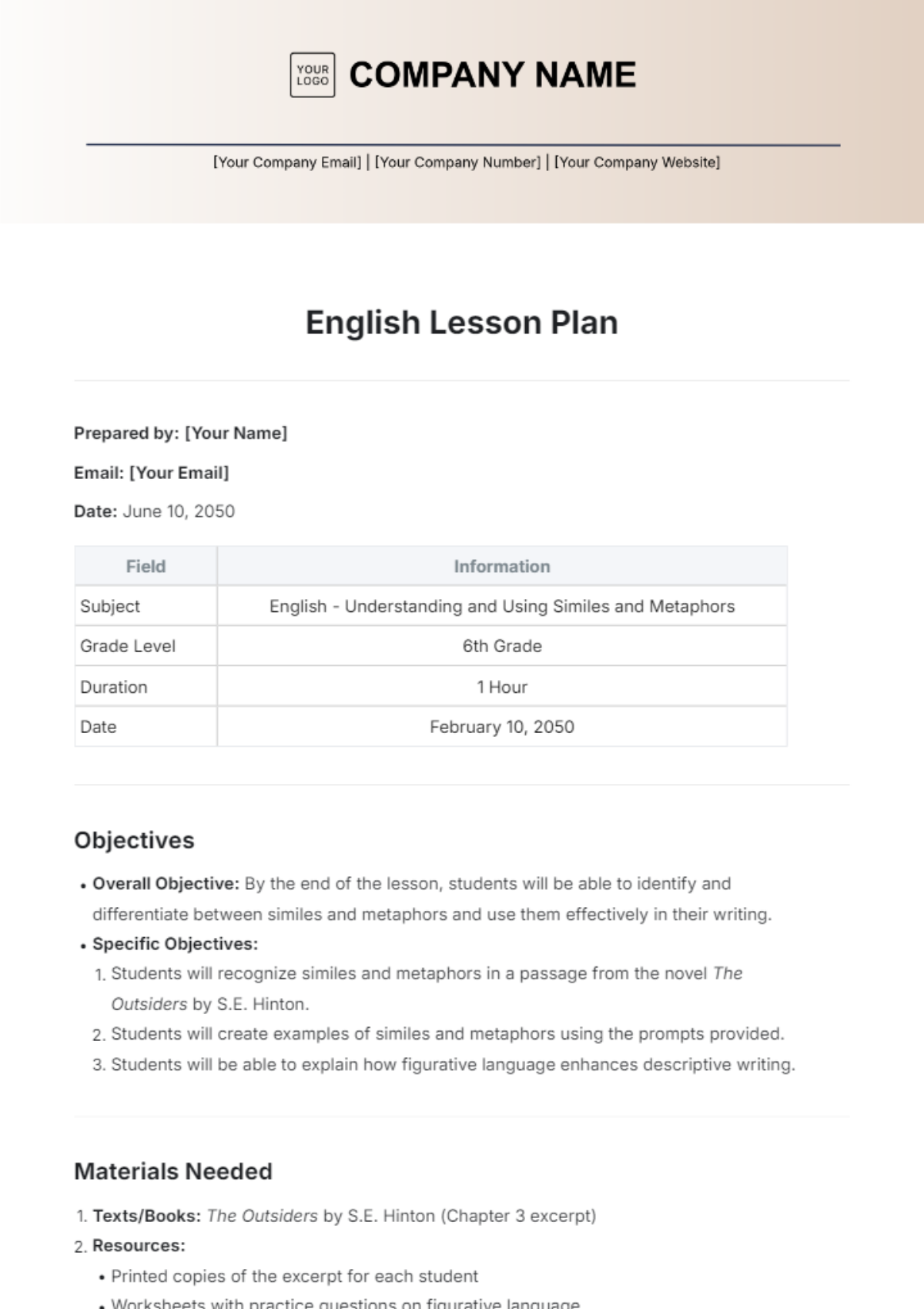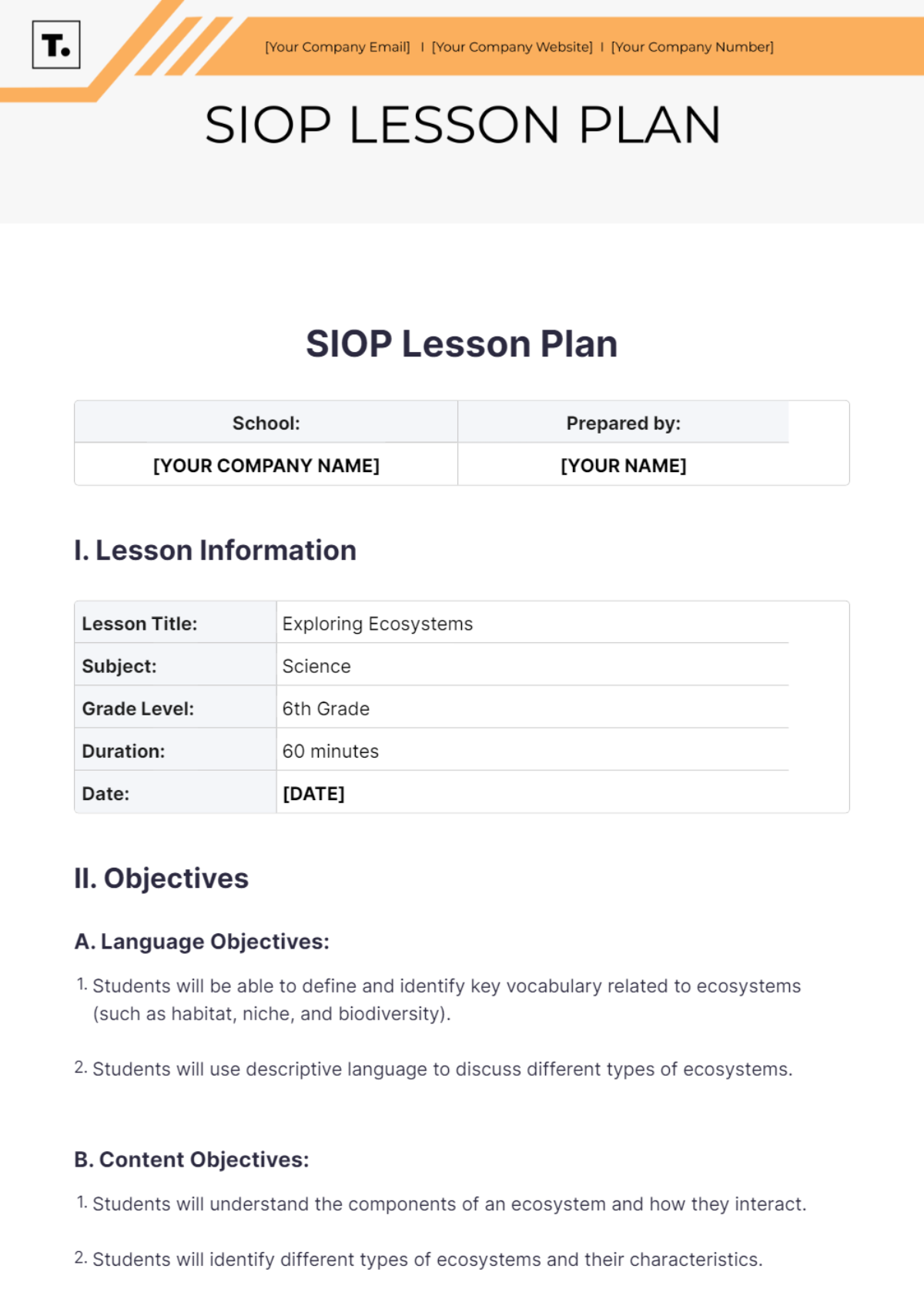Reading Lesson Plan
Teacher: [Your Name]
Email: [Your Email]
Date: May 12, 2060
Component | Details |
|---|---|
Grade Level | 4th-5th Grade |
Duration | 90 minutes |
Subject | Reading Comprehension |
Objectives
Improve reading comprehension skills.
Expand vocabulary.
Enhance critical thinking through discussion and analysis.
Develop the ability to identify main ideas and supporting details.
Materials
Selected Reading Passage or Book:
Choose a grade-appropriate text, such as "The Tale of Despereaux" by Kate DiCamillo, focusing on themes of courage and friendship.Whiteboard and Markers:
For brainstorming and displaying key vocabulary words.Projector and Screen (Optional):
Use for displaying multimedia resources, such as video clips related to the text.Handouts:
Graphic organizers (e.g., “Main Idea and Supporting Details” chart)
Vocabulary lists with definitions and example sentences
Pencils and Paper:
For note-taking and completing graphic organizers.
Procedures
A. Introduction (10 minutes)
Begin the class with a brief discussion about the themes of courage and friendship as they relate to the reading material.
Ask students questions such as: “What does courage mean to you?” and “Can you think of a time when you or someone you know had to be brave?” This will activate prior knowledge and build engagement.
B. Pre-Reading (15 minutes)
Introduce key vocabulary words from the passage (e.g., “courageous,” “betray,” “narrative,” “persevere,” “companion”).
Distribute graphic organizers to help students outline the main ideas and details before reading.
Set a purpose for reading by asking guiding questions like: “What challenges do you think the characters will face?” and “How do you think the themes of courage and friendship will be developed?”
C. During Reading (30 minutes)
Have students read the passage silently for 20 minutes. Alternatively, read aloud for 15 minutes, then allow 15 minutes for silent reading.
Pause at strategic points (after each chapter or section) to ask comprehension questions, such as:
“What just happened? Who was involved?”
“How do the characters’ actions reflect the themes we discussed?”
Encourage students to use context clues to decipher unknown words and make predictions about the text.
Allow students to take notes on their graphic organizers while reading, highlighting key events and character motivations.
D. Post-Reading (25 minutes)
Facilitate a discussion about the passage, focusing on the main ideas and supporting details. Use guiding questions like:
“What was the main conflict in the story?”
“How did the characters demonstrate courage?”
Encourage students to refer to their graphic organizers and answer the guiding questions set during pre-reading.
Review the vocabulary words, asking students to create sentences using each word in context. Clarify any misunderstandings regarding vocabulary and concepts.
Assessment
Criteria Indicators
Comprehension
Ability to accurately recall details and main ideas from the text, assessed through participation in discussions and completion of graphic organizers.
Vocabulary
Correct usage and understanding of key vocabulary words introduced, and evaluated through individual sentence creation and participation in discussions.
Critical Thinking
Participation in discussions and ability to answer analytical questions, assessed through their engagement in group conversations and individual reflections.
Closure
Summarize the key points from the discussion, emphasizing the importance of courage and friendship in the text.
Highlight any areas for further study or reflection, such as exploring additional texts that deal with similar themes.
Assign related homework, such as a reflective journal entry on a time they demonstrated courage or a brief written response about how they would react in a similar situation to the characters in the story.
